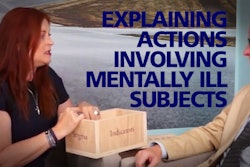The Oregon Supreme Court on Thursday disagreed with more than 50 years of state case law by ruling that Oregonians retain a privacy interest in the garbage they leave on the curb for pick-up. That means police can’t search the garbage without a warrant even after a truck hauls it away.
The Supreme Court ruled in the case of Tracy Lynn Lien and Travis Allen Wilverding, who shared a home and were convicted of methamphetamine dealing after police from the 16,000-resident city of Lebanon asked the community’s garbage hauling company, Republic Services, to pick up and set aside the contents of the pair’s garbage on collection day in 2014. Police then dug through that trash, found evidence of drug activity and got a warrant to search the home. That led to the convictions.
The high court found that police had violated the Oregon Constitution’s protection against unreasonable searches because Lien and Wilverding had privacy interests in their trash and because the garbage hauling company acted as “an agent” of police by collecting the trash for a detective, the Oregonian reports.
The majority opinion noted that even the U.S. Supreme Court has said Americans don’t have a reasonable expectation of privacy “in trash left for collection in an area accessible to the public.” But the U.S. Supreme Court also said individual states are free to impose “more stringent constraints on police” based on their own constitutions.
Thursday’s ruling applies to curbside refuse collected from private homes. It doesn’t appear to apply to trash thrown in public garbage cans in public places.
Note: This ruling only affects officers in Oregon. Check your state law or discuss with your agency counsel.










